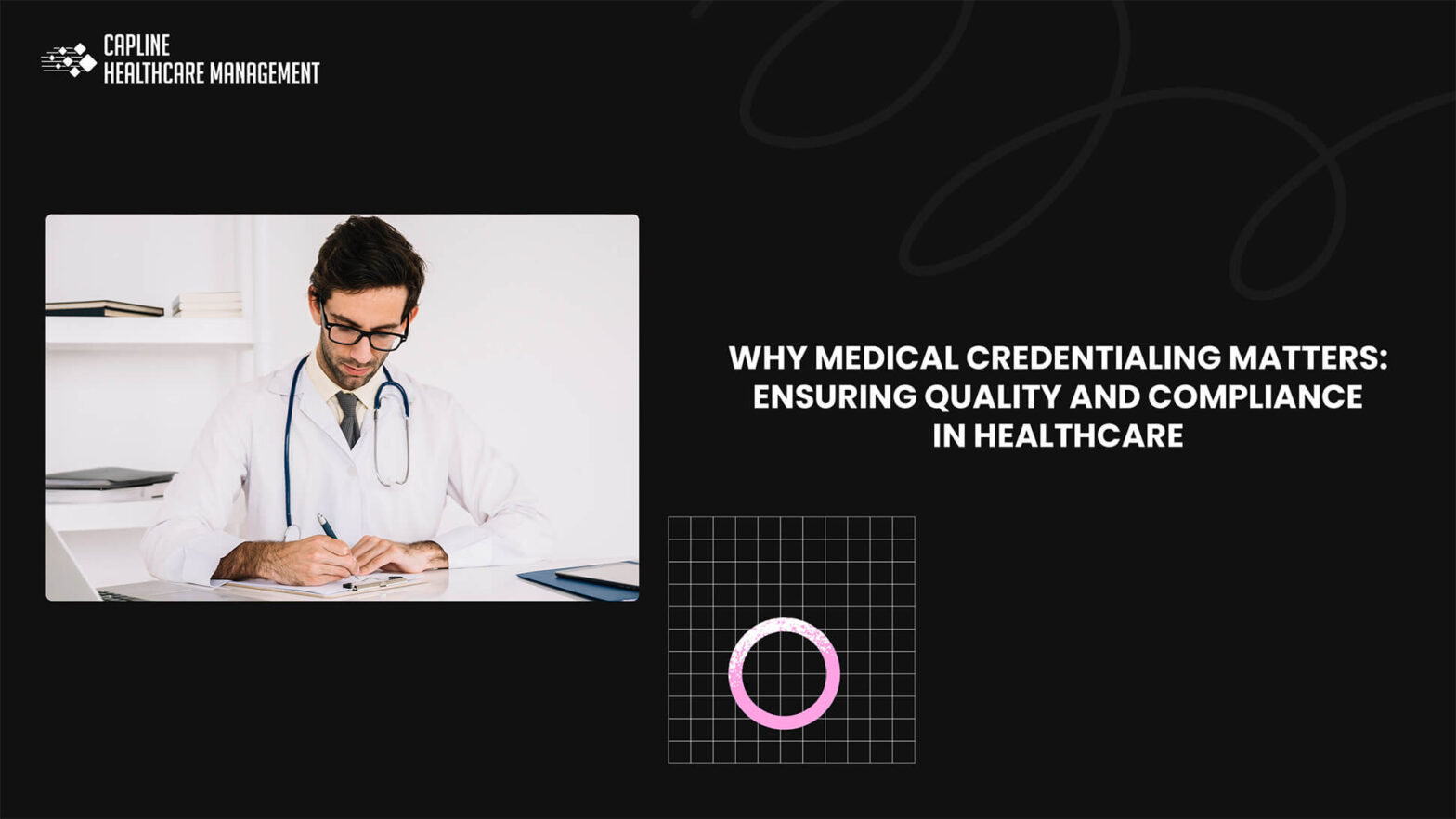Why Medical Credentialing Matters: Ensuring Quality and Compliance in Healthcare
Have you ever wondered how healthcare professionals maintain the trust and confidence of their patients? Medical credentialing plays a vital role in a field where lives are at stake. This often occurs out of the patient’s view, but it is the key way that only those who are properly trained and hold a license deliver care. But why does credentialing play such an important role? From maintaining compliance in healthcare to improving telemedicine and advancing digital health, credentialing is basic to high-quality healthcare.
What is Medical Credentialing?
Medical credentialing is the process of reviewing the professional credentials of a healthcare provider, including education, training, and employment history. This includes verifying education, licenses, certification, and work experience, among other things. The purpose is to ensure that healthcare providers are qualified to provide appropriate and safe service. If credentialing were not in place, there would be no efficient mechanism for verifying that the people who are offering the health services have the necessary skills for the job.
Why is Medical Credentialing Crucial for Quality and Safety?
Credentialing is not only a verification of the provider’s competence but also one of the largest components of patient protection and enhanced quality within health care. Here’s why it matters:
- Ensures Patient Safety: Credentialing reduces risks because independent practicing entities can only be allowed to provide medical services if they have undergone the standard practicing licensing examination and are licensed, which is crucial for the remote patient care settings where most of the patients’ interactions occur online.
- Builds Patient Trust: People get reassured when they are receiving services or care from individuals who have been effectively screened and selected, regardless of whether services are being delivered offline or online.
- Promotes Accountability: Credentialing maintains the healthcare practitioner’s responsibility to maintain, set, and conform to service quality and patient-carer relations within the sphere of healthcare.
Compliance in Healthcare: How Credentialing Plays a Role
Compliance in healthcare is crucial because without it healthcare institutions cannot adhere to either the ethical principles or legal requirements. Medical credentialing is a significant component in fulfilling these requirements:
- Aligns with Regulatory Standards: Legal agencies demand that healthcare providers meet very high qualification standards. Conformity in the medical field guarantees that such regulations are effected in order to safeguard the interests of both the patient and the healthcare givers.
- Mitigates Legal Risks: Credentialing assists healthcare organizations in not getting entangled in the lawsuits that might arise due to the hiring of the wrong providers. This compliance safeguard is mandatory now that patients’ rights are protected, especially with the new forms of care delivery such as remote care and digital services.
- Improves Organizational Reputation: A healthcare organization’s credentialing process increases its credibility and gives the patients and other stakeholders confidence that the organization only hires the best professionals.
Medical Credentialing and the Growth of Digital Health
Due to the advancement in digital health and telemedicine, credentialing has become vital more than ever before. With a growing number of healthcare providers practicing remotely, credentialing makes sure that such providers meet the same expectations as traditional healthcare providers. Whenever providers receive credentials for remote patient care, this means that they are competent to safely manage and conduct online consultations and/or monitor the condition of a patient remotely.
- Supports Remote Patient Care: Credentialing processes verify that providers are qualified to offer services in virtual settings, enhancing patient confidence in remote patient care.
- Enables Cross-State and Global Services: Many providers now serve patients across different states or even countries, making credentialing essential to ensure compliance with various legal standards.
- Adapts to New Technologies: Digital health technologies bring new ways to provide care, but they also require providers who are trained and credentialed in these innovations.
Key Benefits of a Strong Credentialing Process
In healthcare, the benefits of a robust credentialing process extend beyond legal and regulatory compliance. Here’s what a strong credentialing process offers:
- Higher Standards of Care: Ensures only qualified professionals provide patient care.
- Risk Reduction: Reduces medical errors and malpractice cases.
- Enhanced Patient Satisfaction: Patients are more likely to trust and feel satisfied with their care when they know the providers are well-vetted.
Conclusion: Credentialing as a Pillar of Quality Healthcare
Medical credentialing is not just a requirement that complies with the legal requirements; it is a measure that shields the patient and the image of the healthcare institution. The trend of remote patient care and digital health rises as credentialing becomes the key to safe and compliant services. Credentialing is very important in an industry that involves the delivery of quality healthcare services and where patients’ confidence is of utmost importance.
Without medical credentialing, the medical industry would be operating in a vacuum with no way of measuring the quality it produces and no way of meeting compliance standards. Despite these constant changes in healthcare, credentialing stands as the cornerstone of the four pillars, which include quality, safety, and trust.




